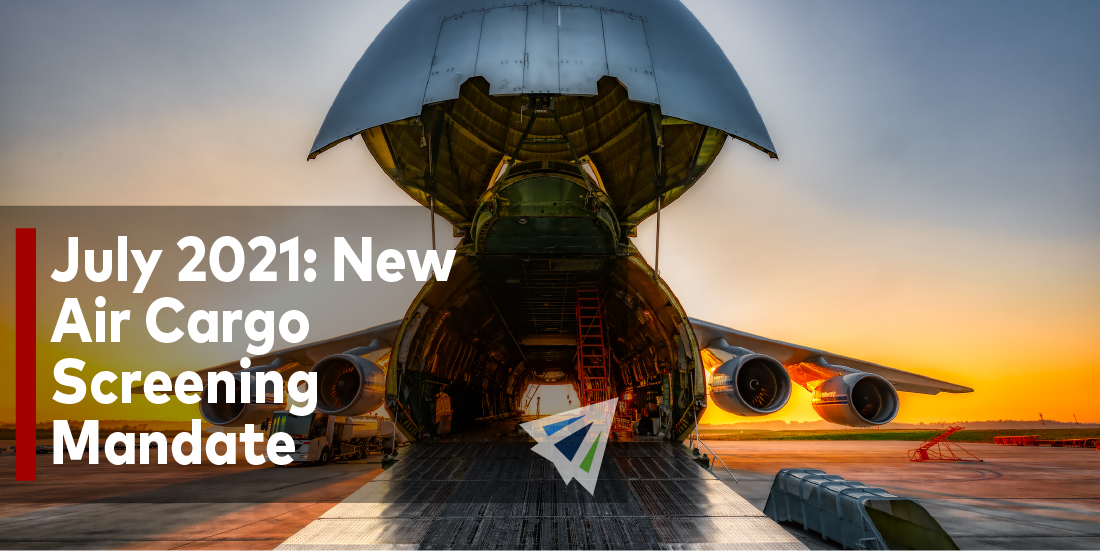When TSA opened up the TSA Known Shipper program, it allowed U.S. based shippers that were verified TSA Known Shippers to ship cargo in the bottom of passenger aircrafts. In order to ensure security on all passenger aircraft cargo flights, TSA requires that 100% of cargo boarding passenger aircraft to be thoroughly screened. However, the same safety measures have not been put in place for cargo aircraft shipments. At least, until now.
TSA has been screening cargo going aboard passenger aircraft since 2010. Just recently, the International Aviation Civil Organization (IACO) passed a rule that all air cargo must be screened before boarding freight planes as well.
While the changes to the screening process ensure a safer shipping environment through more border security and an equalized security standard for all cargo in the air, industry experts and carriers are expecting the change to cause shipping and loading delays.
With the new air cargo screening rules going into effect from the IACO, here are a few ways you can stay ahead to ensure your cargo continues to move seamlessly:
Canine Team Screening
Carriers are scrambling to get processes in place to deal with the new screening requirements. To say it will be an adjustment would be an understatement. The major drawback of screening all air cargo is the added time and delays it’ll cause. That’s why it’s so important to work with a carrier that uses canine teams of sniffer dogs to screen cargo.
Traditional screening methods used by TSA involve X-Ray machines, explosives trace detection (ETD), and manual searches. Nearly all of which take a considerable amount of time.
Canine teams are the most efficient and effective way of screening air cargo. However, right now they are in very high demand. With the new screening rules going into effect, it’s pretty much guaranteed the demand for sniffer dogs will outweigh the supply. Sniffer dogs are selectively bread and start training at an early age, making it nearly impossible to increase the workforce of canine teams quickly.
Talk with your freight forwarder about finding air carriers that have canine teams of sniffer dogs already set up as a part of their air cargo screening process to ensure your shipments are drastically delayed as a result of the new screening laws.
Secure Packaging Facility
Just before the new screening laws went into effect, TSA finalized a process for how to become a certified TSA Secure Packaging Facility.
Secure Packaging Facilities are allowed to screen and verify cargo themselves, since they operate as a screening station. An option for large scale (think enterprise size) businesses is to open a facility near an airport and follow TSA’s process for becoming a certified Secure Packaging Facility.
It’s important to note – becoming a secure packaging facility only exempts you from cargo screening on non-passenger aircrafts. Anything flying underneath a passenger aircraft will have to undergo the same screening processes it has since 2010.
Stay Ahead
Planning far in advance for shipments used to only be commonplace when dealing with ocean freight. The influx in U.S. imports has overwhelmed carriers of every shipping mode. The demand for air capacity has been high for months and continues to get worse solely as a result of increased demand and production. Combine the stress of an already over-saturated market with the new 100% air cargo screening rules and you have a recipe for disaster.
Staying ahead – for ocean, air, intermodal, and road shipping – is imperative right now. And it’s your job to find a freight forwarder that can help you strategize as the market changes and airports adjust to the new cargo screening rules.
The biggest tip for shippers right now? Talk with your freight forwarder about planning far in advance for all future shipments. You want to take control of the market – not find yourself reacting simply to stay afloat. That involves consulting your team, expressing the severity of these industry updates, and actually adjusting your shipping process accordingly. It also involves working with an experienced freight forwarder that practices active listening as a part of their client handling process.
If you have any questions about the air cargo screening news, are interested in finding solutions, or have anything else on your mind, please don’t hesitate to reach out to one of our team members. We would love to help you and your team!
